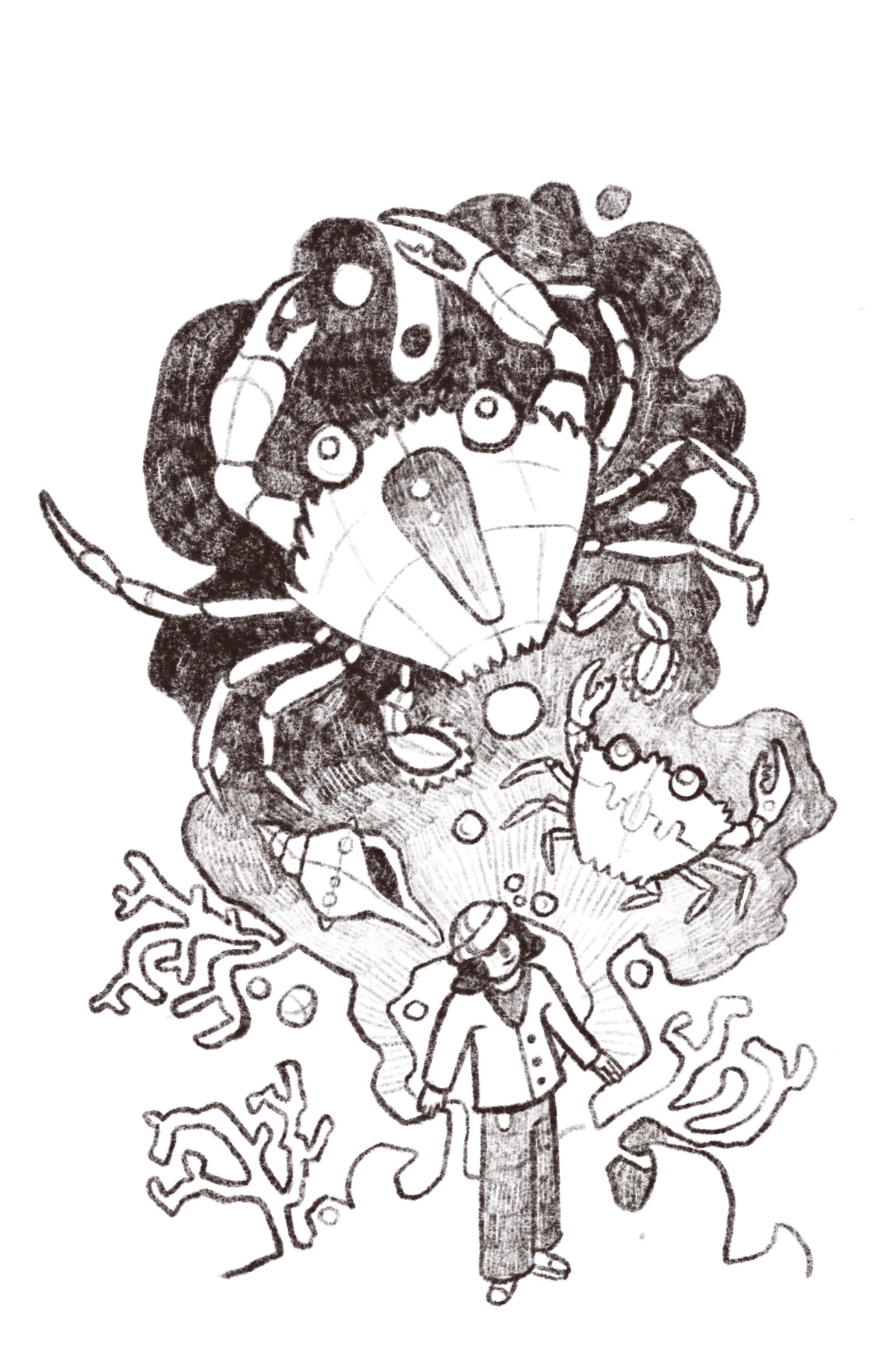Thoughts from on the island
October 21, 2022
 Celeste Mercier
Celeste MercierI spent most of my fall break circumnavigating Kent Island’s tidepools—slipping over mounds of seaweed, hopscotching boulders, singing to periwinkles, bushwhacking a mile in rubber boots and lifting tiny green crabs out of the water. Until I was closed in by the Atlantic in every direction, my experience with the ocean was limited to yearly beach outings and a few whale watching trips in Canada with my family, and I was fascinated by it. I’d always perceived the Atlantic with a mix of admiration, fear and curiosity, but my perceptions hardly had the chance to come into focus until this past weekend. I felt that I was on the precipice of some groundbreaking discovery about myself.
It was on this trip that I finished reading Greenwood by Michael Christie, which is a generational story about humans’ impact on the environment. It frames the story of the Greenwood family like the rings of a tree—beginning at the outermost edge with a family member in 2038, spiraling inward to her early 1900s ancestors and gradually returning outward with stories from the future. The reader decodes the history of the family through ephemeral glimpses into each character’s life the way a dendrologist might decode the history of a tree. Christie predicts a future in which trees have been largely wiped out by invasive fungi, a phenomenon catalyzed by rising temperatures. One of the few locations home to living old-growth trees is an island off the coast of British Columbia, known as Greenwood Island. The island is a vacation locale for global elites who pay exorbitant sums of money to return to nature and breathe clean air in the island’s self-sustaining ecosystem. What makes this dystopian story even more jarring is that it’s set a short 16 years from now.
As much as “Greenwood” is a novel about our future in terms of climate change, it also comments on the messy, multidimensional and contradictory nature of human life. Family dynamics, the many demands of society and humans’ relationship with nature are investigated over the course of 130 years. As the many mysteries of the Greenwood family are uncovered, so are the core inclinations of humanity, the clockwork by which we operate. Humans can be brutally reckless and capitalistic; they can be charitable and benevolent; they can be countless combinations of attributes. But it’s not this polarity (or lack thereof) that I’d like to talk about. Instead, it’s the fluidity, the idea that we can do anything we want and reach any heights imaginable—for better or worse.
On our way back from Kent Island, we stopped at a lighthouse in Grand Manan, New Brunswick, a tourist attraction on a rocky outcropping with trails tapering toward the open ocean. I sat on a boulder and watched the tide lap up against a small pool a hundred feet below me, watching seaweed ebb back and forth with the current, idly thinking about its carbon dioxide pockets lifting its chloroplasts toward the sun. We were awaiting the ferry, so I had at least thirty minutes to just be there. I was contemplating my weekend—if maybe, just maybe, I’d want to look into studying marine biology—when a seal surfaced the water just below me. It rotated its head, took a cursory look around and then dove back into the water. It appeared momentarily, within seconds—almost too fleetingly for it to be important. I’d never before had the patience to comb tidepools or watch the sea long enough for a living thing to surface and I loved every second of the experience.
It’s unclear what my newfound love of tidepooling will culminate in— if, like I briefly imagined, I study marine biology or spend a summer on Kent Island. Perhaps my discovery was that I didn’t have to hold myself to versions of the future I’d already planned out. Or maybe, my discovery was that I just really like crabs and snails and sea anemones; that finding life in what looks like a seabound alien landscape makes me happy. Either way, the ambiguity is invigorating.

Comments
Before submitting a comment, please review our comment policy. Some key points from the policy: